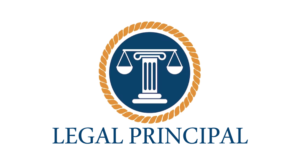A personal injury can drastically alter your life, affecting not just your physical health but also your emotional stability and financial security. To ensure you receive the compensation you are entitled to in such circumstances, it is essential to understand the personal injury claim process. This manual will assist you through the challenging procedures involved in filing a personal injury claim, enabling you to confidently negotiate the challenging legal environment.
Initial legal advice consultation
Seeking legal guidance is the first stage in the personal injury claim process. A knowledgeable personal injury lawyer can give you crucial advice by determining the strength of your claim and outlining your rights and choices. Be prepared to discuss the specifics of the occurrence, any supporting documentation, and any relevant medical records during the initial session. The lawyer will be able to assess the merits of your claim with the aid of this information.
Researching and Amassing Evidence
When you decide to move forward with the claim, the lawyer and their staff will launch a careful investigation. To do this, you must gather evidence, including accident reports, witness accounts, medical records, photos, and any other pertinent information. The caliber and volume of the evidence obtained during this stage heavily influences the strength of your case.
Medical Assessment
Your personal injury claim will depend greatly on a proper medical evaluation. To determine the severity of your injuries, necessary medical treatments, and potential long-term repercussions, your lawyer could advise getting a second opinion from a doctor. This medical assessment establishes a key connection between your injuries and the occurrence, supporting the validity of your claim.
Letter of Demand and Talks
Your attorney will create a demand letter once they have gathered enough proof and are certain of your losses. This letter describes the incident’s specifics, the severity of your injuries, and the amount of compensation you are requesting. After reviewing the demand letter, the opposing party—typically an insurance provider—will make a first settlement offer. To ensure that you receive a fair settlement that fully compensates you for all of your losses, skilled negotiating is crucial during this period.
suing a Court
The next step is to file a lawsuit if negotiations don’t result in a suitable resolution. Your lawyer will draft the required court paperwork and help you navigate the litigation procedure. Even though the majority of personal injury claims are resolved before going to trial, being ready for court is essential.
Discoveries and Motions Before Trial
Both sides participate in the discovery process throughout the pre-trial stage. This include the exchanging of proof, witness statements, and professional opinions. Pre-trial motions may also be filed by your attorney to address legal concerns that could have an effect on the case’s outcome.
Arbitration or Trial
There may be prospects for additional settlement talks prior to the trial. If a settlement is made, the matter comes to an end. However, the matter goes to trial if a settlement cannot be struck. Your case will be presented by your attorney, and a judge or jury will decide the result based on the evidence given.
Conclusion
The personal injury claim process can be difficult and complicated, necessitating careful navigation and legal competence. You can increase your chances of receiving the compensation you are entitled to by following these instructions and getting the advice of an experienced personal injury lawyer. Always keep in mind that every case is different, and having a solid support network will help you achieve your goals.

